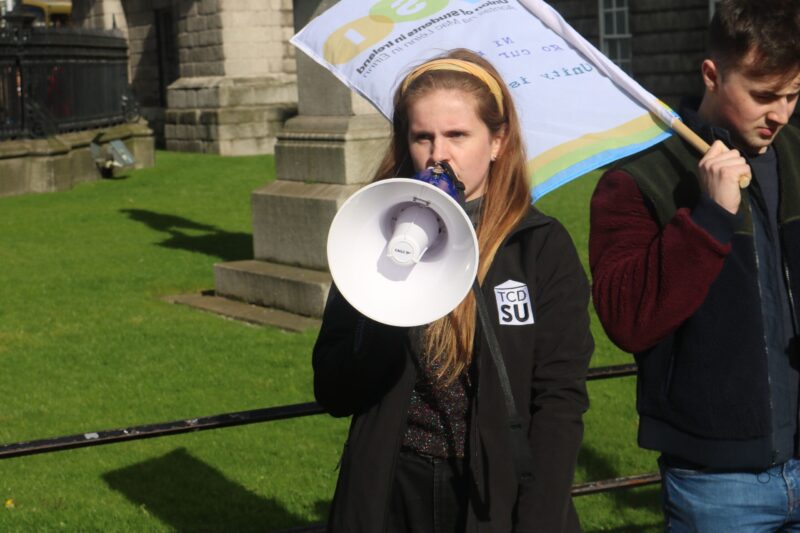Trinity College Dublin Students’ Union (TCDSU) President Laura Beston has slammed “preposterous” and “hurtful” comments made about student accommodation by Provost Patrick Prendergast.
In an op-ed in the Irish Times, published yesterday, Prendergast said that student accommodation “cannot be cross-subsidised by revenues from student fees or research grants”, and “has to pay for itself” in order to keep up with demand.
Last night, in an email statement to The University Times, Beston wrote that Prendergast’s comments “show the exact problem higher education is facing in this country right now”.
Beston said: “I find it shocking that the provost cannot equate issues such as a rental increase to their impact on student services and welfare”, adding that his comments are “hurtful and eye opening”.
She wrote that it “should never be the onus of the student to prop up the educational system, be it through fees or on campus accommodation”.
“To imply that students who are commuting right now will be those footing the bill and not availing of the benefit is simply preposterous.”
In the op-ed published today, Prendergast criticised the idea of college-subsidised accomationation, asking: “Why should students living in flats or at home subsidise those living in university accommodation?”
Beston said that it “is not, nor should it ever be the responsibility of students to prop up the harshly underfunded system that is the Irish higher education system”.
The College, she said, has not opposed underfunding in higher education – “nor has it in fact made any visible lobbying efforts for increased investment into third level education”.
“Until this can happen it seems farcical that the college would challenge and belittle the students mobilising against unsustainable rent increases when these are the ones actually doing something positive about the issue at hand”, she added.
In an email statement to The University Times, Tom Molloy, the College’s director of public affairs and communications, wrote that the “piece has two central arguments”.
“The first is that all new student accommodation must be funded from borrowing and this borrowing must be repaid”, he wrote. “The second argument is that it would be unfair to have college accommodation subsidised by students who are not staying in college accommodation.”
“It is difficult to see how either view is anything other than a statement of fact.”
Prendergast yesterday defended the use of campus accommodation as a source of revenue for the university, writing: “The universities are also able to rent out rooms when term ends to visiting academics, students, tourists and others. This provides much-needed revenue that subsidises academic activities.”
“It’s one way we can offset the massive drop in public funding of higher education. The income earned is ploughed back into essential academic activity.”
Prendergast’s op-ed comes in the wake of a stream of protests in response to rent increases on a number of Ireland’s university campuses. Last week, for the second week in a row, Trinity students blocked off the entrance to the College in protest at possible rent increases, calling for a rent freeze amid a wave of demonstrations across the country at the cost of student accommodation.
Students in University College Cork have spent the last week occupying the “Quad” area of their campus, in response to the college’s decision to increase on-campus rent by three per cent. Students in University College Dublin, Dublin City University and NUI Galway have staged similar protests in recent weeks.
The University of Limerick has also come under fire for a new campus accommodation scheme that will see a second bed added to apartments originally designed for one person.







